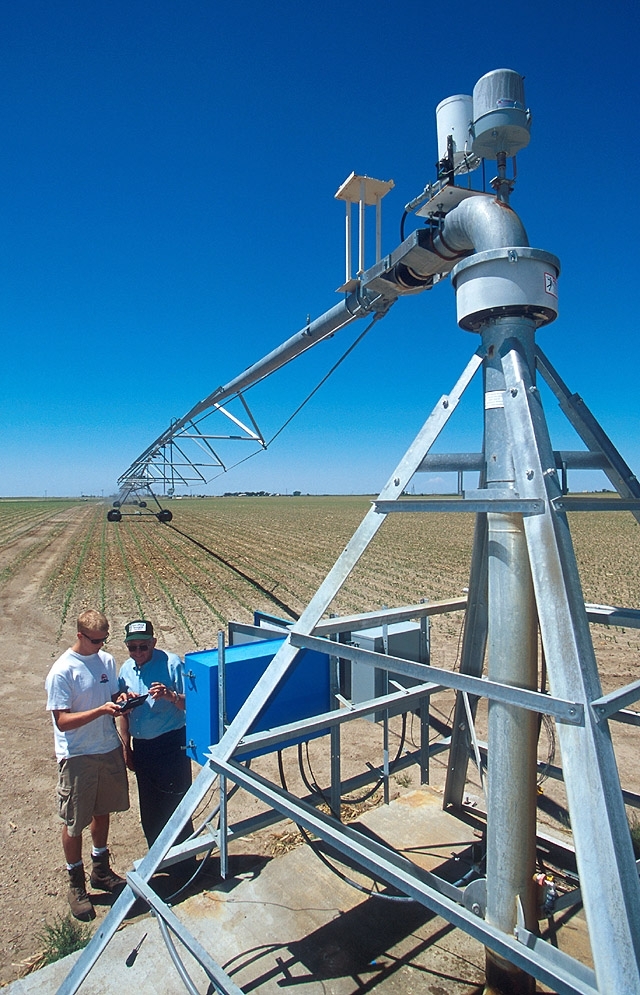
Farmers and other members of the public are invited to the free event to see the system in operation and learn how overhead irrigation can be combined with no-till or minimum-till farming methods to create a more sustainable, profitable and environmentally sound agriculture industry. The field day includes a free barbecue dinner. To register, go to: http://ucanr.edu/TwilightRegistration.
Overhead irrigation systems, such as center pivot systems, are the most prevalent form of irrigation nationwide; however, they have not been widely adopted in California to date. Recent technological advances in overhead irrigation – which allows integration of irrigation with global positioning systems (GPS) and management of vast acreage from a computer or smart phone – have boosted farmers’ interest in converting from gravity-fed surface irrigation systems, which are still used on 5 million acres of California farmland.
“We see tremendous possibilities for overhead irrigation in cotton, alfalfa, corn, onions and wheat production,” said Jeff Mitchell, UC Cooperative Extension specialist in the Department of Plant Sciences at UC Davis. “There is also great potential for overhead irrigation in California’s $5 billion dairy industry for more efficiently producing feed crops like alfalfa, corn and sorghum.”
The use of the new system at the West Side Research and Extension Center, valued at about $100,000, was donated by Reinke Manufacturing of Hastings, Neb. Reinke will also sponsor the installation of its OnTrac irrigation monitoring system, which will give farmers and the public a real-time, online window of observation on crops growing and being irrigated by the new center pivot.
To begin with, the center pivot will irrigate an 8-acre half-circle of alfalfa and an 8-acre half-circle of cotton. All aspects of production – including irrigation system performance, weed control, fertilization, soil salinity and economic viability – will be monitored by a diverse team of researchers from UC Cooperative Extension, Fresno State University and UC Davis, plus farmer cooperators and industry members.
“In cotton and alfalfa, we will study deficit irrigation,” Mitchell said. “By controlling the speed of the pivot, pie-shaped segments will get either full irrigation, three-quarters of the full amount or about half of the full irrigation quantity.”
At the Sept. 13 field day, researchers will share what they have already learned about using center pivot systems in California. Participants will hear how overhead irrigation systems operate, how they are optimally managed, how soil water sensors can be used in conjunction with overhead systems and how overhead systems can result in higher application efficiencies and uniformities.
For more information, contact Jeff Mitchell, jpmitchell@ucdavis.edu, (559) 303-9689.